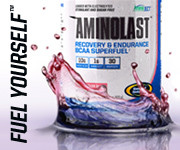In the 1970s scientists studying the Inuit people of Greenland weren’t expecting to find people with healthy cardiovascular systems. They ate whale blubber after all and barely had any fresh fruits or vegetables. But the Inuits had very healthy hearts and no problems with cholesterol. What was going on?
It turns out that the Inuit diet was very rich in Omega 3s, an essential fatty acid. Omega 3s protect our cardiovascular systems as well as provide relief from inflammation, help with brain function, immune system health, and may even help prevent cancer.
 Omega 3 fatty acids need to come from your diet, the body cannot manufacture them. They also need to be in the right balance with Omega 6s, another group of essential fatty acids. The bio chemistry is complicated, but basically Omega 6 and Omega 3 compete for processing by the body and if you have too many Omega 6s in relation to Omega 3s you won’t be able to process the Omega 3s.
Omega 3 fatty acids need to come from your diet, the body cannot manufacture them. They also need to be in the right balance with Omega 6s, another group of essential fatty acids. The bio chemistry is complicated, but basically Omega 6 and Omega 3 compete for processing by the body and if you have too many Omega 6s in relation to Omega 3s you won’t be able to process the Omega 3s.
While Omega 6s are essential, our modern western diets are usually packed with plenty of Omega 6s and we consume very few Omega 3s. Not only does this mean that we don’t get the benefit of the Omega 3s, but we also might suffer from the inflammatory effects of too much Omega 6.
So unless you are eating a lot of seal meat and whale blubber, it’s a good idea to supplement your Omega 3 intake. The easiest way to do this is with fish oil. A typical daily dosage is about 3g or 3000mg of two particular components, EPA and DHA.
Every manufacture is different, so you will need to read the label carefully to make sure you are getting the right amount of EPA and DHA. If you have trouble with ‘fishy’ burps, try lemon flavored capsules or enteric coated capsules.





